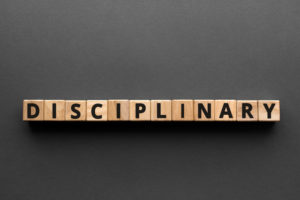From physicians to real estate brokers and agents, the vast majority of licensed professionals are very conscientious about their legal, ethical, and moral obligations to their clients, patients, and the public at large. However, good people can still make mistakes – mistakes that range from simple oversights to regrettable conduct.
In these situations, many licensed professionals will give their full cooperation to their regulatory board out of embarrassment or shame. In doing so, they hope that their board may be more lenient or impose a lighter punishment.
While your cooperation will certainly be appreciated and might have some positive effect on the outcome of your case, licensed professionals need to understand that this is far from certain. Whether your violation was unintentional or truly regrettable, working with a professional license defense lawyer is a better way to ensure that you get the best possible outcome.
Balancing Your Obligation to Cooperate with Your Best Interests
To be clear, you likely have an ethical obligation to fully cooperate with any investigation or other disciplinary proceedings. Ignoring their requests or failing to respond will make your situation far worse and most likely result in the revocation of your license.
That said, cooperation does not mean that you need to necessarily admit wrongdoing or act against your own self-interest. Unfortunately, the line between cooperation and asserting your rights is rarely clear, especially when your career is on the line. An experienced professional license defense lawyer can guide you through the process, ensuring that you meet your obligation to cooperate while also protecting your best interests.
Disciplinary Proceedings Are Adversarial
Many licensed professionals who are facing disciplinary actions are in crisis – not just because they are facing the loss of their license, but often because there was a personal crisis underlying their actions that led to the alleged violation. These crises can include substance abuse issues, mental health problems, or even severe financial problems. Professionals in this situation often think that admitting all wrongdoing is the best way to resolve the situation. They think that, as a member of their profession, the board will sympathize with them and be more lenient in their approach.
Licensed professionals who are facing disciplinary proceedings need to remember that the board’s first priority is to protect the reputation of the profession and address any wrongdoing. They may provide you with resources that help you deal with whatever crisis you may be facing, but that does not mean that they will take a softer approach with regard to any alleged professional violations.
The bottom line is this: the board is not on your side. Whatever situation you may be facing, an experienced professional license defense attorney can evaluate whether and how it can be appropriately used as a mitigating factor in your case.
Disciplinary Proceedings Are Quasi-Criminal Proceedings
In many ways, facing a disciplinary proceeding can be very similar to being charged with a crime. While it may not result in imprisonment, you face very serious consequences in addition to the suspension or revocation of your license. You could be ordered to pay fines, attorney’s fees, and costs, and an adverse outcome could cause tremendous embarrassment and harm to your reputation. In short, the outcome of your proceeding could have a severe impact on your ability to earn a living.
Licensed professionals would therefore do well to approach their cases in the same way you would approach being charged with a crime. In addition to the actual violations you have been charged with, there are procedural elements of your case that you will need to navigate, and procedural mistakes can cost you dearly. Similar to a criminal case, anything that you say or do may be used against you. Perhaps most importantly, you have the right to be represented by counsel. The best way to protect yourself and your license is to engage a professional license defense lawyer who can help you reach a fair outcome.
Facing a Disciplinary Proceeding? Contact the Law Firm of J.W. Stafford
Whether it was a minor oversight or a major violation, the outcome of your case can carry significant consequences. While you may be required to cooperate with your disciplinary board, you are also entitled to defend yourself. The most important thing is to not lose hope and remember that you have options. Contact professional license defense attorney J.W. Stafford and his team to discuss your case today – call us at 410-514-6099 or send us an email to schedule a confidential consultation.

